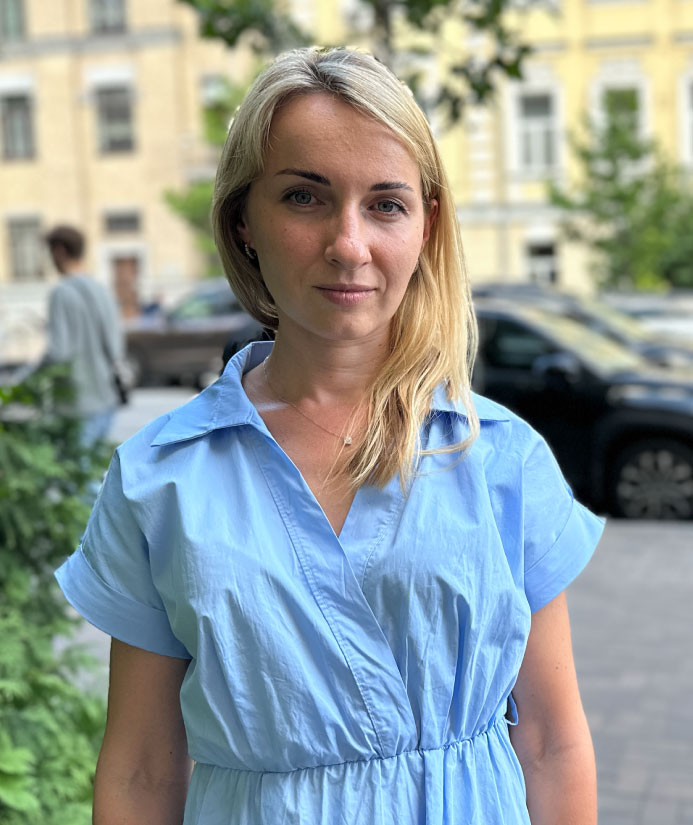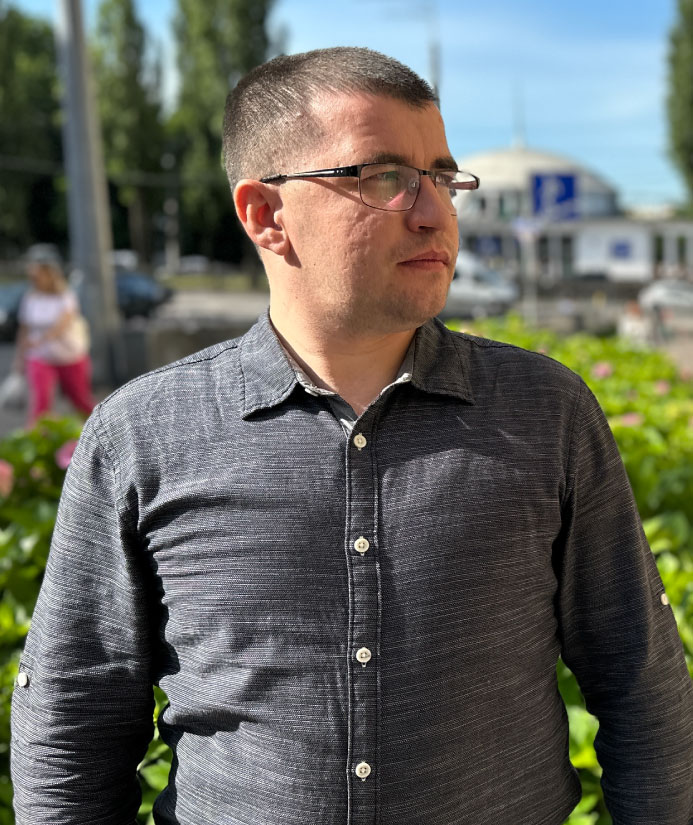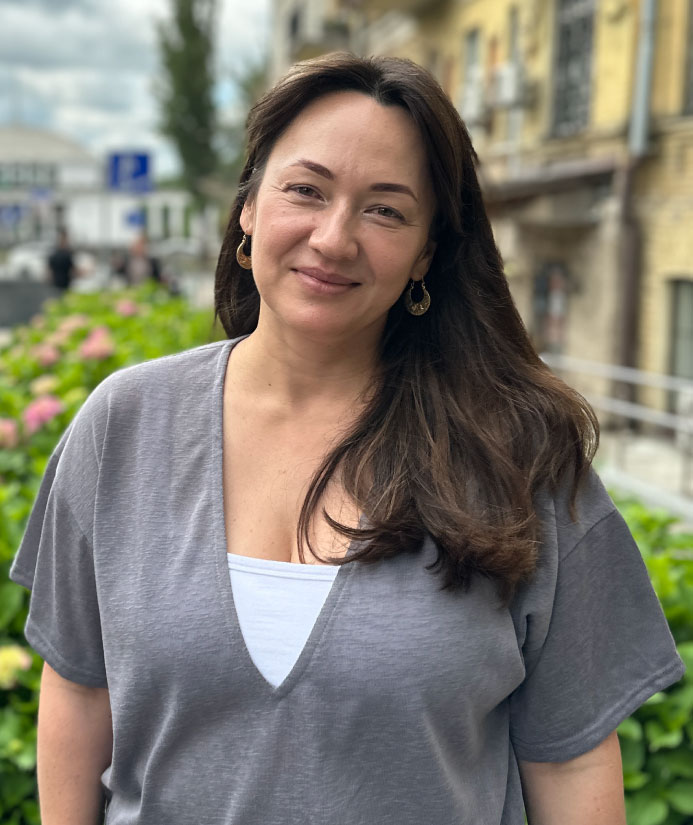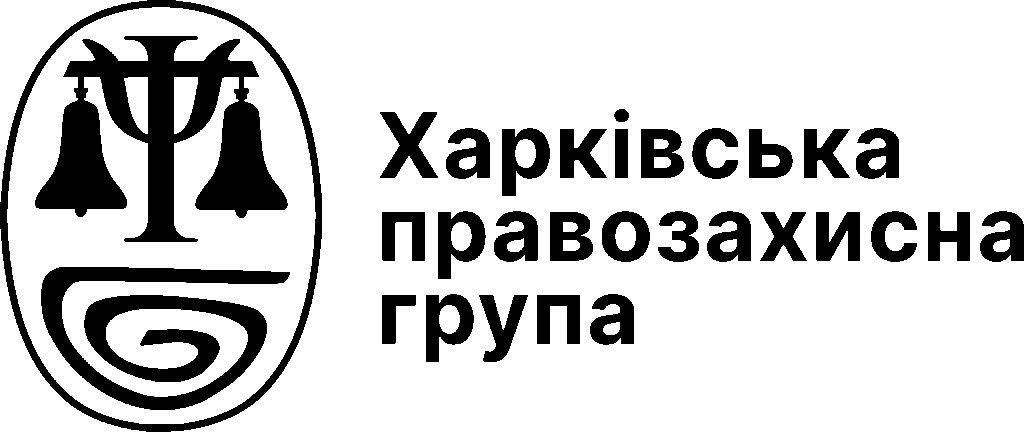Kyiv, Ukraine
Hver gang Tamila tror, hun har set det værste, bliver hun konfronteret med en ny sag
They collect evidence
of war crimes
while the bombs fall
Marie Torp Christensen
January 8, 2026
Kyiv, Ukraine
They collect evidence
of war crimes
while the bombs fall
De indsamler beviser
for krigsforbrydelser,
mens bomberne falder
Marie Torp Christensen
January 8, 2026
Every time Tamila thinks she has seen the worst; she is confronted with a new case.
Marie Torp Christensen
January 8, 2026
Every time Tamila thinks she has seen the worst; she is confronted with a new case.
Since the Russian invasion of Ukraine, a group of lawyers and psychologists have been collecting testimonies of torture and other possible war crimes. They do it for the sake of justice and to give some of the survivors their voice back.
On this page, you can meet some of those who are facing some of the darkest sides of the war.
Since the Russian invasion of Ukraine, a group of lawyers and psychologists have been collecting testimonies of torture and other possible war crimes.
They do it for the sake of justice and to give some of the survivors their voice back.
On this page, you can meet some of those who are facing some of the darkest sides of the war.
The blue and yellow flags flutter quietly in the wind. Hidden beneath the forest of flags are hundreds of candles, pictures of soldiers, and personal messages.
Although it is mainly the hum of cars that breaks the silence on Maidan Square in the heart of Kyiv, the place bears witness to a country at war – with thousands of soldiers at the front. Here, the war is being fought with brutal intensity, and war crimes such as torture against Ukrainians are part of reality, even though they are prohibited under the international law.

One of those working to ensure that those responsible for war crimes are held accountable is Tamila Bespala.
She is the legal aid coordinator at the human rights organization Kharkiv Human Rights Protection Group (KHPG), which is one of DIGNITY's partners in Ukraine.
Together with her colleagues, Tamila Bespala collects testimonies from victims of war:
»Every time I work on a case involving war crimes, I think it can't get any worse. But then someone new comes in with a testimony that is even worse. «
International crimes must be documented
Kharkiv Human Rights Protection Group was established in 1992 and, since the start of the war in 2014, they have been continuously collecting testimonies from survivors of grave human rights violations and alleged international crimes, including civilian prisoners, and released prisoners of war to provide evidence to national and international courts.
»It is a matter of justice. The crimes that are being committed must not go unpunished. Otherwise, we are sending a signal that it is permissible to torture, abuse and bomb civilians, « says Yevgeniy Zakharov, the Director of Kharkiv Human Rights Protection Group.
Specifically, the work of collecting testimonies and other evidence of international crimes is carried out both digitally and physically, after which everything is collected in the organization’s database, which has 16,705 entries in October 2025.
What I have learned through my work and all the people I have met is that there are no limits to creativity. The Russian military is constantly inventing new ways to torture people
Tamila Bespala
Digital collection takes place both through journalistic media and conversations in private messaging groups on, for example, Telegram, Signal and WhatsApp, where people write about attacks with missiles, drones and combat operations. This information is also collected during the monitoring visits to the de-occupied territories and via Kharkiv Human Rights Protection Group hotline.

»Among other things, I tell them that what they have experienced may constitute international crimes, and that documenting these crimes can help prevent them from happening again, « says Denys Polishchuk, a lawyer with Kharkiv Human Rights Protection Group and one of those working to collect evidence.
DIGNITY has been working with Kharkiv Human Rights Protection Group since 2019 and has, among other things, trained staff in how to ensure that their documentation of evidence of international crimes meets the international standards of documentation so that witness statements and other evidence can be used in national and international courts.
How DIGNITY supports kharkiv human rights protection group
Since 2022, DIGNITY has been working with Kharkiv Human Rights Protection Group to document international crimes, including torture and conflict-related sexual violence, in Ukraine.
We strengthen their capacity to document war crimes and crimes against humanity in accordance with international humanitarian law and international criminal law standards and methods that ensure that the evidence is admissible in court – while always focusing on the needs and mental health of torture survivors.
This work is supported by the Ministry of Foreign Affairs of Denmark.
Torture is constantly evolving
Tamila Bespala spreads her arms to show the length of a fictional metal stick.
»What I have learned through my work and all the people I have met is that there are no limits to creativity. The Russian military is constantly inventing new ways to torture people. «
And that is precisely what she wants to illustrate with the imaginary metal stick. In one of the cases she has documented, the perpetrator drilled a metal rod through the upper part of the victim’s back, who was then hung up by the metal stick.
»We had a visit from an Italian lawyer who wanted to read some of our cases. When I presented them to him, he thought they were cases I had made up because they were so violent, « says the legal aid coordinator, who has worked for Kharkiv Human Rights Protection Group for six years.
Today, there is an absolute ban on torture. Despite this ban, torture is still widespread and is used in two-thirds of the world’s countries. The purpose of torture is often to break people down physically and mentally. This applies whether the purpose of torture is to humiliate, punish, intimidate or interrogate. There is no evidence that torture is effective as a form of interrogation. On the contrary.
They need help to learn how to live with the experience they went through in captivity - to accept what happened and gradually works with the shame, guilt, and grief that accompany it(...)
Yuliia Onishchenko
In the war between Russia and Ukraine, torture is particularly widespread in the occupied areas in eastern and southern parts of Ukraine.
A report from the UN Human Rights Monitoring Mission from February 2025 concluded that almost 95 percent of the former Ukrainian prisoners of war, they had interviewed had been subjected to torture or ill-treatment, while around half had been subjected to sexual torture, and at least 21 Ukrainian prisoners of war has died in custody.
The same report also concluded that a good 75 percent of the released civilian prisoners had provided credible evidence that they had also been subjected to torture or ill-treatment. It further documented that at least 29 civilians have died in detention in the occupied areas, and at least 170 have been executed.
How torture is defined
Torture is defined as any act by which severe pain or suffering, whether physical or mental, is intentionally inflicted on a person for such purposes as obtaining information or a confession, punishing him or her, or intimidating or coercing him or her or a third person, or for any reason based on discrimination of any kind.
Torture differs from gross violence in that it is carried out by, at the instigation of, or with the consent of a public official. The perpetrator may thus be a soldier or a higher commander in the hierarchy.
Article 5 of the UN Declaration of Human Rights from 1948, unequivocally states that no one shall be subjected to torture or cruel, inhuman or degrading treatment or punishment.
Despite the ban, torture is still widespread. In 2014, Amnesty International published a report which concluded that torture was used in 141 countries around the world.
How a war crime is defined
‘War crimes’ include intentional killing, torture or inhuman treatment, unlawful deportation, hostage-taking, and intentionally attacking the civilian population as such or individual civilians not taking direct part in hostilities. The International Criminal Court has jurisdiction over war crimes committed as part of a plan, policy or as part of a widespread commission of such crimes.
How crimes against humanity are defined
‘Crimes against humanity’ include the following acts when committed as part of a widespread or systematic attack against a civilian population and with knowledge of the attack: murder, enslavement, deportation or forcible transfer of a population, imprisonment in violation of the fundamental rules of international law, torture, rape, persecution, enforced disappearance and apartheid.
It’s all about trust
Many torture survivors feel ashamed of what they have been through, which can make it difficult for them to open up to both their loved ones and professionals such as Denys Polishchuk.
»The most important thing for me is to establish a good connection with the survivors I meet. They need to feel safe, and they will only do so if they trust me to treat them and their testimony confidentially. «
That is why Denys Polishchuk spends time explaining how Kharkiv Human Rights Protection Group uses testimonies and that they are stored securely in the organization’s database.
»There are several people who want to talk about what they have been through. Among other things, it takes time to be ready to talk about what they have been exposed to. In addition, over time it becomes difficult to deal with the trauma alone, « says Denys Polishchuk, who also believes that more and more people are beginning to understand the importance of documenting their experiences.
»That’s why it’s also crucial that there are professionals they can share it with and feel that there is someone who cares about what has happened to them.«
Risk of traumatization
What, when, where, how and who are some of the questions that Kharkiv Human Rights Protection Group needs answers to when documenting, for example, torture survivors’ testimonies about the crimes they have been subjected to. Nevertheless, there is a risk of traumatization associated with giving testimony, because victims typically relive the torture and other crimes they have been subjected to when they recount them.
»There is a risk that survivors may be re-traumatized because the investigative interviews are so detailed,’ says Tamila Bespala, who, along with her colleagues, has been trained by DIGNITY in special interview methods that take survivors into consideration and are specifically designed to minimize the risk of re-traumatization. Part of the documentation also involves conducting both medical and psychological examinations of the survivors.
One of those conducting psychological assessments is Yuliia Onyshchenko, a psychologist who has worked for Kharkiv Human Rights Protection Group since 2023. She works closely with the organization’s lawyers and participates in some of their investigative interviews so that she can support and conduct psychological assessments of the individuals they are interviewing.

»I always work with the utmost respect for the survivors who entrust me their stories. They are incredibly strong people - they managed to survive in hellish conditions and found the courage to speak about their experiences« says the psychologist.
Together with the survivors she determines what kind of support they need - whether it is immediate crisis assistance, long-term therapy, or delayed intervention when the person feels ready for deeper work.
»They need help to learn how to live with the experience they went through in captivity – to accept what happened and gradually works with the shame, guilt, and grief that accompany it. Torture and violence leave people with deep and lasting trauma but with proper support they can rediscover their inner resources and strength and eventually achieve post-traumatic growth. «
Many people who have survived torture live with severe physical and psychological consequences. They may suffer from post-traumatic stress disorder, nightmares, chronic pain, anxiety, and depression. These traumas make it difficult to return to everyday life and to regain a sense of safety. When adults’ traumatic experiences remains unprocessed, their effects can influence their children and be passed on to future generations, forming transgenerational patterns of trauma.
It is a mentally demanding job
Like Denys Polishchuk, both Tamila Bespala and Yuliia Onyshchenko find that their work can be demanding on their own mental health, because they hear harsh details about torture and abuse from the survivors. They are at risk of burning out or being victims of so-called secondary traumatization.
It makes a difference to torture survivors when they know that their perpetrators may eventually be brought before a judge. It is also important for society's sense of justice that those responsible for war crimes cannot go unpunished
Denys Polishchuk
One of the cases that Tamila Bespala and Yuliia Onyshchenko have worked on together concerns a boy they were supposed to interview.
They had chosen to meet the boy and his aunt at a zoo because the boy loves animals and feels safe there. His mother, along with other women and children, was tortured, raped and killed in their home because their husbands and fathers were part of the Ukrainian forces. The boy was also subjected to both torture and rape and he was the only one to survive.
»It took me three months to prepare myself for meeting the family. I think it took extra-long time because I have a son myself. That’s why it’s particularly sensitive to me when we work on cases involving children, « says Tamila Bespala.
»I am often told that I am good at connecting with people. On the one hand, this is an advantage in my work because it is important to get involved, but on the other hand, it also has a price, « she says.
That is why it is important to her that both she and her employees receive ongoing support to cope with the psychologically stressful work environment. They receive help with this through their collaboration with DIGNITY.
Here, the focus is on ensuring that employees are continuously provided with the tools they need to work and cope with, among other things, the documentation of war crimes.
For Yuliia Onyshchenko, her work requires her to take care of herself and receive ongoing psychological supervision. In addition, she has some specific rituals when she returns home to her husband.
»I need to feel the ground beneath my feet, feel my body, and sit for a while and watch people walking by, continuing their lives even though they are living under the war. «
Hope for the future
On 1st of January 2025, Ukraine acceded to the Rome Statute, becoming the 125th state to join the International Criminal Court (ICC).
This means that Russian President Vladimir Putin can be prosecuted for international crimes committed on Ukrainian territory – even though Russia has not acceded to the court. At the same time, it opens the possibility for Ukrainian soldiers to be tried for abuses against Russian prisoners of war.
However, the International Criminal Court can only exercise criminal jurisdiction if Russia is unwilling or unable to prosecute the alleged international crimes in its own courts.
The testimonies and other evidence collected by Kharkiv Human Rights Protection Group have resulted in 7115 cases as of October 1, 2025, which have been submitted to the Ukrainian courts and to the International Criminal Court in cooperation with the Ukrainian authorities.
»The documentation of international crimes and alleged crimes against humanity is important because we are in a situation where human rights are being undermined. We must take responsibility for this and do something to change it, « says Denys Polishchuk, continuing:
»It makes a difference to torture survivors when they know that their perpetrators may eventually be brought before a judge. It is also important for society’s sense of justice that those responsible for war crimes cannot go unpunished. «
Back at Maidan Square, the sea of flags, pictures and greetings continues to grow, while the war at the front continues, and the evidence in Kharkiv Human Rights Protection Group’s database continues to mount.
This gives hope, says Yuliia Onyshchenko:
“I am deeply moved and inspired to see how trust is gradually being restored in the communities we work with. People are once again reaching out to one another for help, offering support, and rebuilding the connections and structures that occupation and torture tried to destroy. It gives a sense that society is capable of renewal – step by step, through humanity and mutual support.«
This work is supported by the Ministry of Foreign Affairs of Denmark.



The war in Ukraine
The war between Russia and Ukraine has been going on for more than a decade, starting in March 2014 when Russia annexed the Crimean Peninsula. On 24 February 2022, a new phase of the war began when Russia launched its full-scale invasion of Ukraine.
Two international bodies investigating the war in Ukraine
The International Criminal Court – ICC
On 17 March 2023, the International Criminal Court (ICC) issued an arrest warrant for Russian President Vladimir Putin. He is believed to be responsible for the illegal deportation of Ukrainian children to Russia and the illegal transfer of Ukrainian children from the occupied territories of Ukraine to Russia, cf. Article 8 of the Rome Statute.
The arrest warrant means that the 124 countries that have acceded to the Rome Statute must arrest the president and hand him over to the ICC in The Hague if he sets foot in one of those countries.
Independent International Commission of Inquiry on Ukraine
On 4 March 2022, the UN Human Rights Council established the Independent International Commission of Inquiry on Ukraine, which aims to investigate all alleged human rights violations, breaches of international humanitarian law and international criminal law and related crimes in connection with Russia’s aggression against Ukraine.
Torture in Ukrainian prisons
During a monitoring visit from the UN Human Rights Monitoring Mission in Ukraine, HRMMU, Russian prisoners of war accused the Ukrainian authorities and military of subjecting them to torture and inhuman treatment.
Torture in Russian captivity
According to figures from The Ukrainian Parliament Commissioner for Human Rights, Dmytro Lubinets, more than 16,000 Ukrainian civilians have been captured and taken to Russia since the beginning of the invasion.
And according to a report from the UN Human Rights Monitoring Mission from February 2025 concluded that almost 95 percent of the former Ukrainian prisoners of war and 75 percent of the released civilian prisoners had been subjected to torture or ill-treatment while in Russian captivity.
DIGNITY –
Danish Institute Against Torture
Bryggervangen 55
2100 Copenhagen Ø
Phone: +45 33 76 06 00
[email protected]
CVR: 69735118
EAN: 5790000278114
Konto: 4183 4310821209
